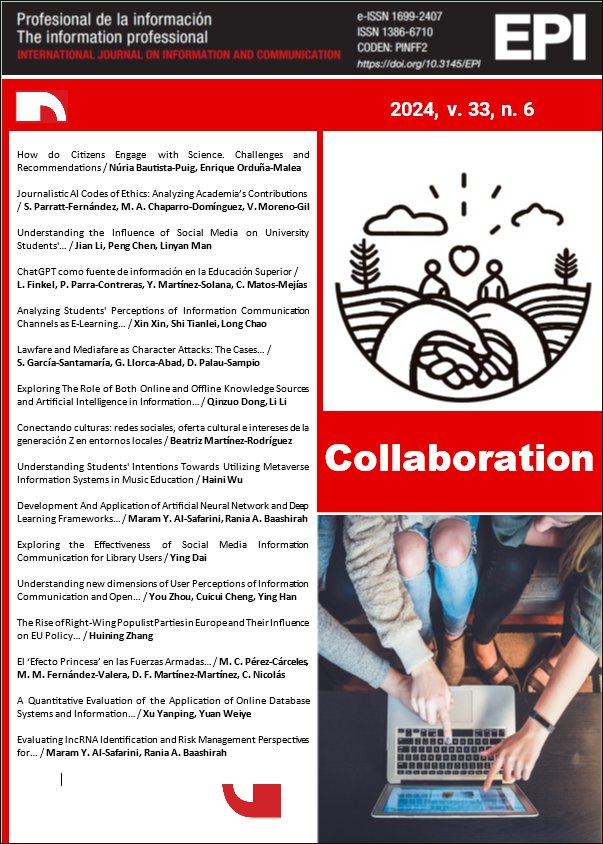Analyzing Students' Perceptions of Information Communication Channels as E-Learning Platforms in Higher Education
DOI:
https://doi.org/10.3145/epi.2024.ene.0605Palabras clave:
Perceived Ease of Use, Content Accessibility, Interaction Quality, Student Engagement, Learning Effectiveness, Higher Education, China.Resumen
The e-learning platforms are regarded the best innovation in higher education especially in China, due to the advancement in technologies and the increase access to the internet. This study examines students’ perception of information communication channels as e-learning platforms and assesses the impact of perceived ease of use, content accessibility, and interaction quality on student engagement and learning effectiveness. The data was collected using convenience sampling technique from 1000 students of various universities in Beijing, China. For data analysis, structural equation modeling (SEM) was used in AMOS software. The findings of the study indicate that all the research hypotheses were supported. The results reveal that perceived ease of use, content accessibility, and interaction quality significantly influences student engagement and learning effectiveness. Student engagement also found to have positive impact on learning effectiveness. Additionally, student engagement mediated these independent variables (perceived ease of use, content accessibility, and interaction quality) and learning effectiveness. Educators and platform developers should focus on how to improve usability, accessibility, and interaction quality to achieve higher educational outcomes. These insights will be useful in the process of defining the further development of higher education in China in the context of modern trends.
Descargas
Descargas
Publicado
Cómo citar
Número
Sección
Licencia
Derechos de autor 2025 Profesional de la información

Esta obra está bajo una licencia internacional Creative Commons Atribución 4.0.
Condiciones de difusión de los artículos una vez son publicados
Los autores pueden publicitar libremente sus artículos en webs, redes sociales y repositorios
Deberán respetarse sin embargo, las siguientes condiciones:
- Solo deberá hacerse pública la versión editorial. Rogamos que no se publiquen preprints, postprints o pruebas de imprenta.
- Junto con esa copia ha de incluirse una mención específica de la publicación en la que ha aparecido el texto, añadiendo además un enlace clicable a la URL: http://revista.profesionaldelainformacion.com
La revista Profesional de la información ofrece los artículos en acceso abierto con una licencia Creative Commons BY.




